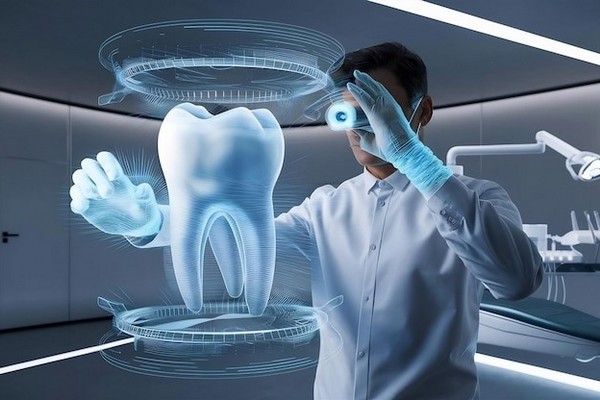The Role of Artificial Intelligence in Dentistry
13.06.2025 287 0

Artificial Intelligence (AI) is transforming industries worldwide, and dentistry is no exception. From diagnostics to practice management, AI is streamlining processes, improving accuracy, and enhancing patient outcomes. As the dental field embraces these innovations, AI is becoming a cornerstone of modern practice, paving the way for smarter, more efficient care.

AI-Driven Diagnostics: Precision at Its Best
One of the most impactful applications of AI is in diagnostics. Machine learning algorithms can analyze X-rays, CBCT scans, and intraoral images to detect issues like cavities, fractures, or early signs of oral cancer with remarkable precision. These tools often outperform human analysis in spotting subtle abnormalities, reducing the risk of misdiagnosis. Platforms like Future Dentistry highlight how AI-driven diagnostics are shaping the future, enabling dentists to catch problems earlier and plan treatments more effectively.Enhanced Treatment Planning: Personalized Care Solutions
AI also enhances treatment planning. For orthodontics, AI software can predict tooth movement and simulate outcomes for braces or aligners, helping dentists create precise, patient-specific plans. In restorative dentistry, AI assists in designing crowns and bridges, ensuring optimal fit and aesthetics. High-quality materials for these restorations, available from suppliers like Dentist Supplies, complement AI's precision, resulting in superior outcomes.Streamlined Practice Management: Efficiency Redefined
Practice management is another area where AI shines. AI-powered scheduling systems optimize appointment bookings, reducing wait times and improving patient satisfaction. Predictive analytics can forecast patient no-shows, allowing practices to adjust schedules proactively. Additionally, AI chatbots handle routine inquiries, freeing up staff to focus on in-person care.
Personalized Patient Communication: Building Stronger Relationships
Patient communication is also improving with AI. Tools like natural language processing enable personalized follow-up messages and oral health tips tailored to individual needs. These systems can analyze patient data to recommend preventive measures, such as specific hygiene products available through Dentist Supplies, enhancing at-home care.Educational Advancements: Training the Next Generation
AI's role in education is equally exciting. Virtual reality simulations powered by AI allow dental students to practice procedures in a risk-free environment, honing their skills before treating real patients. These advancements, as noted by Future Dentistry, are preparing the next generation of dentists for a tech-driven industry.Challenges and Considerations: Navigating the Transition
However, adopting AI comes with challenges. Practices must invest in training to ensure staff can use these tools effectively. Data privacy is another concern, as AI systems rely on patient information, requiring robust cybersecurity measures. Despite these hurdles, the benefits—improved diagnostics, streamlined operations, and better patient care—make AI a worthwhile investment.The Future of AI in Dentistry: Embracing Innovation
As AI continues to evolve, its integration into dentistry will only deepen. Practices that embrace these technologies can stay competitive, offering cutting-edge care that meets modern expectations. By staying informed through resources like Future Dentistry and sourcing reliable materials from Dentist Supplies, dentists can fully leverage AI's potential to transform their practice.
| |
